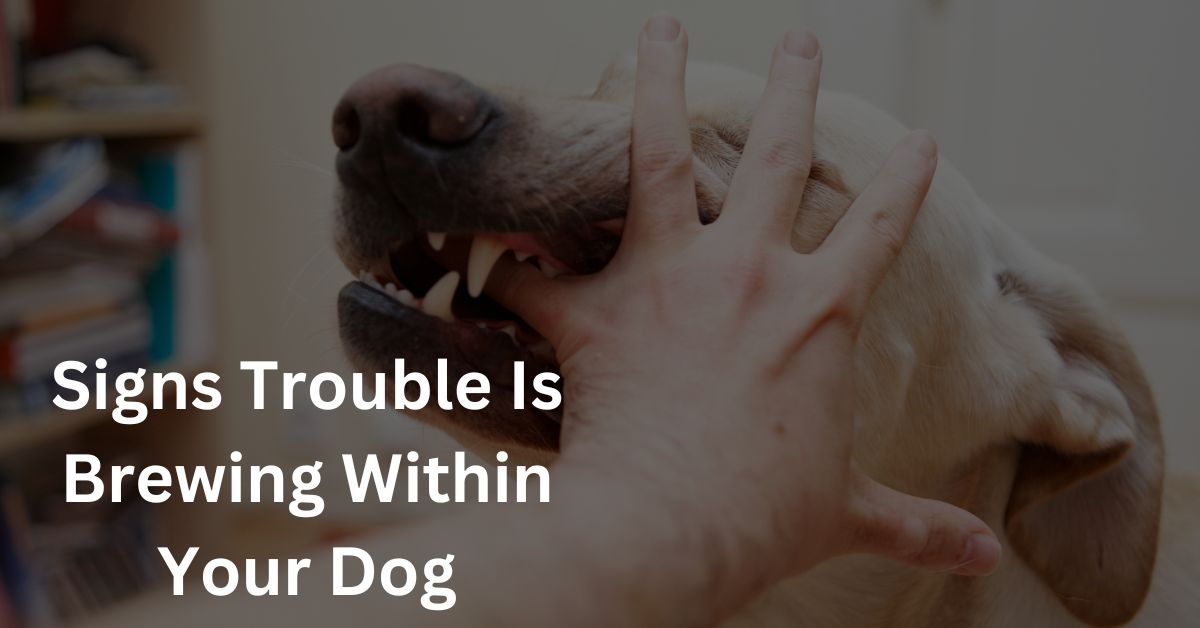Are you a dog owner unsure about including beef in your furry friend’s diet? Here’s a fact, dogs are omnivores, and beef can be an excellent source of protein for them. This article provides clear guidance on the types of beef that are safe for dogs and those you should avoid.
Keep reading to ensure your pup gets a nutritious meal!

Is Beef Safe for Dogs to Eat?
Feeding beef to dogs comes with some risks, mainly when raw.
Risks associated with feeding beef to dogs
Feeding beef to dogs, particularly in its raw form, can present several potential risks that pet owners must be aware of. One key concern is the presence of harmful bacteria like Salmonella, Listeria, and E.coli often found in raw beef. Dogs fed this type of meat are at an increased risk of shedding these bacteria, potentially leading to health issues for them and their human companions.
Furthermore, parasites inside the raw beef can likewise cause problems for dogs’ well-being when consumed regularly as part of a raw diet plan. Therefore, while giving your furry friend some fresh ground beef might seem like a welcome treat due to its nutritional value, it’s essential to consider these associated risks before making it a staple in their meal plan.
Dogs and raw beef
Feeding your dog raw beef has become a popular trend due to the perceived health benefits of raw food diets for dogs. Advocates argue that, unlike processed dog food, raw meat can provide essential nutrients in its most natural form.
However, it’s not always safe. Raw beef carries potential risks and should never be sourced from the supermarket as it may have additional contamination.
The dangers lie primarily in harmful pathogens like E.coli, salmonella, or listeria in the meat, which could cause serious illnesses or infections in dogs. Even worse, if a dog contracts salmonella from tainted meat, this illness could be further transferred to humans, posing an even greater risk.
Therefore, while dogs can digest raw meat, it doesn’t necessarily mean they should do so regularly without proper guidance from a vet or nutritionist due to the inherent risks of raw beef consumption for pets and not getting a fully balanced diet.
Best cuts of beef for dogs
Choosing the best cuts of beef for your canine friend can ensure they get enough protein while maintaining a healthy weight.
- Opt for lean beef: Cuts with less than 85% to 90% lean beef are ideal for dogs due to their lower fat content.
- Choose boneless cuts: Selecting beef cuts free of bones, fat, and gristle is safer to prevent choking hazards or digestive problems.
- Consider ground beef: This lean beef is easy for dogs to eat and digest, making it an excellent choice.
- Look at round steak: As a lean, nutritious option, round steak makes the list.
- Beef tenderloin is also an excellent pick: It’s lean, easily digestible by dogs, and full of nutritional benefits such as protein, iron, zinc, and selenium.
- Use eye of round roast: As one of the leanest parts of a cow, it provides essential nutrients without adding too much fat to your dog’s diet.
- Check out sirloin tip side steak, too: This part offers many proteins and few calories.
Can Dogs Eat Cooked Beef?
Cooked beef is safe for dogs and can be a nutritious addition to their diet.
Feeding your dog cooked beef
- Cooked beef can be a nutritious addition to your dog’s diet.
- It should be given in moderation and not as the primary food source.
- Ensure the cooked beef is unseasoned and contains no harmful additives.
- Ground beef should be cooked thoroughly to eliminate any bacteria.
- Homemade beef and rice can be offered to dogs, but they should only make up a small portion of their meals.
- A balanced dog diet should include various protein sources, not just beef.
Types of cooked beef that are safe for dogs
- Unseasoned cooked ground beef can be safely fed to dogs in small amounts.
- Cooked lean cuts of beef, such as sirloin or fillet, are safe options for dogs.
- Slow-cooked or braised shredded beef can also be given to dogs if it is unseasoned and free from additives.
- Leftover roast beef can be fed to dogs if it is plain and contains no harmful seasonings or spices.
- It is important to avoid feeding dogs processed beef products, such as jerky or sausages, as they may contain additives and preservatives that can harm their health.
Types of cooked beef to avoid feeding to dogs
- Cooked beef with seasonings or spices like onion or garlic, as these can be toxic to dogs.
- Processed beef products such as deli meats or hot dogs often contain additives and preservatives that can harm dogs.
- Beef cooked in oil or fat, as excessive fat content can lead to digestive issues and obesity in dogs.
- Cooked beef that is heavily seasoned with salt, as high sodium levels can harm a dog’s health.
- Beef that is overcooked or charred, such as burnt meat, can potentially contain carcinogens that may increase the risk of cancer in dogs.

Can Dogs Eat Beef Bones?
Feeding beef bones to dogs can pose safety risks and potential harm to their health. Find out why it’s essential to be cautious when giving your furry friend beef bones.
Safety considerations when giving dogs beef bones
Feeding dogs beef bones can carry potential risks that owners should be aware of. Raw meat and bones, including beef bones, can be contaminated with pathogens such as E.coli or Salmonella species, which could potentially cause illness in dogs.
However, most raw bones, including those from chicken, turkey, lamb, or beef, are generally safe for dogs to chew on and digest. It is important to select appropriate raw bones for dogs and ensure they are suitable for consumption.
Raw bones are safer than cooked bones because they are less likely to splinter. However, giving dogs any bone can also carry risks such as digestive system obstructions or foreign bodies getting stuck in teeth.
Therefore it is recommended to supervise dogs while chewing bones and seek immediate veterinary attention if a dog shows symptoms like difficulty breathing or excessive drooling after consuming a bone.
Potential risks of feeding beef bones to dogs
Feeding beef bones to dogs can pose several potential risks. One primary concern is the risk of contamination, as raw meat bones, including beef bones, may carry bacteria such as salmonella.
Additionally, bones that are too hard, even when raw, can cause dental fractures or other injuries to dogs. The abundance of bone marrow in beef bones can also exacerbate digestive issues for dogs.
Can Dogs Eat Processed Beef Products?
Feeding dogs processed beef products, such as jerky or sausages, can pose risks to their health. Discover healthier alternatives for your furry friend’s treats.
Risks of feeding dogs processed beef products (e.g., jerky, sausages)
Feeding dogs processed beef products like jerky and sausages can pose risks to their health. One of the biggest concerns is the risk of choking, as these treats are often dense and chewy.
Additionally, processed meats such as hot dogs and bacon have been linked to an increased risk of colorectal cancer, cardiovascular disease, and early death in humans. This raises concerns about potential health implications for our furry friends as well.
Furthermore, certain processed meats may contain Listeria monocytogenes, a harmful bacteria that can cause severe illness in humans and dogs. It’s important to prioritize the safety of our canine companions by avoiding feeding them processed beef products and opting for healthier alternatives.
Healthier alternatives to processed beef treats
Instead of giving your dog processed beef treats, consider these healthier alternatives:
- Beef snacks explicitly made for dogs: Look for brands that use high-quality ingredients and are free from additives and preservatives.
- Meat treats: Choose natural jerky or dehydrated meat treats made from real meat without any fillers or artificial flavors.
- Organ meat treats: Beef liver and other organ meats can provide additional health benefits for dogs, as they are rich in essential nutrients like vitamins A, B12, and iron.
- Pet food designed for canine nutrition: Opt for high-quality dog food formulated to meet your dog’s nutritional needs. Look for brands that use real meat as the main ingredient and have a balanced blend of protein, fats, and carbohydrates.
- Homemade dog food: If you prefer to make your dog food, include lean cuts of cooked beef in their meals. Consult with your veterinarian or a canine nutritionist to ensure nutritional balance.
Frequently Asked Questions
Is it safe for dogs to eat beef?
It is generally safe for dogs to eat beef if it is adequately cooked and served in moderation. Raw or undercooked beef can pose a risk of bacterial contamination, so it should be done after proper consultation with a vet or nutritional consultant.
Can dogs have any health benefits from eating beef?
Beef can provide dogs with essential nutrients like protein, iron, and vitamins B12 and B6. These nutrients support muscle growth, boost energy levels, and improve overall health.
Are there any risks or concerns associated with feeding dogs beef?
There are some potential risks associated with feeding dogs beef. Dogs with certain health conditions may need a specialized diet restricting specific proteins or fats in beef. Additionally, fatty cuts of beef can lead to weight gain or gastrointestinal upset if consumed excessively.
How should I prepare and serve beef to my dog?
Beef should be cooked thoroughly without seasonings or additives that may harm dogs (such as onions or garlic). It’s best to avoid using additional fats when cooking the meat. Cut the cooked beef into small pieces suitable for your dog’s size and mix it with their regular balanced diet for added flavor and variety.
Final Thoughts
Dogs can eat beef, but there are risks associated with feeding them raw beef due to harmful bacteria and parasites. It’s important to choose lean cuts of beef without bones or excessive fat and consider proper storage and handling.
Cooked beef is safe for dogs and can provide a nutritious addition to their diet. However, it should be given in moderation and without seasonings or additives.
Feeding dogs beef bones can pose safety risks, including choking hazards and potential bacterial contamination. Raw bones are generally safer than cooked ones, but chewing requires supervision.
Processed beef products like jerky and sausages should be avoided as they pose health risks to dogs. Instead, choose natural dog treats or high-quality dog food with real meat as the main ingredient.
Before You Go
You will find these articles helpful if you want to discover which other meats your dog can eat.




Leave a Reply